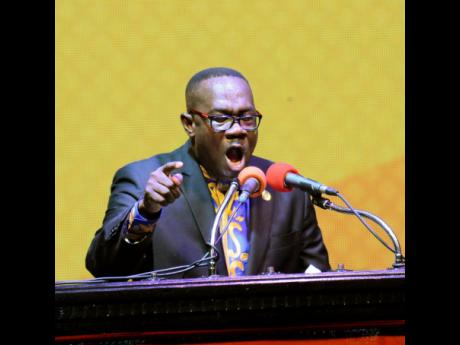Meric Walker: Adventists and politics
While the Seventh-day Adventist Church is generally seen as being moderately conservative, it is also progressive, learning from its historical contexts, respecting the views of others pertaining to attitudes regarding public, political, and civic affairs.
The General Conference of Seventh-day Adventists, as early as 1865 resolved, that “the act of voting, when exercised in behalf of justice, humanity and right, is in itself blameless”. Subsequently, based on the foregoing principle and its social outreach ministry to people, the Church, admonishes its members to exercise their franchise and vote for the candidates and party of their choice.
The church believes that the God of creation, through the method of His choice, not excluding the ballot, sets up and removes political leaders and rules in the affairs of humanity (Daniel 2: 21).
Because the church is comprises all types and classes of people and has a mission to all citizens, whatever their political persuasions, in the interest of such mission, especially where partisan politics is divisive, the members, especially as a group, are not encouraged to take a partisan political line.
More so, all employees being classified as missionaries of the church, including teachers, managers in our schools, and ministers, individually, “are not at liberty to unite in making apparent their prejudices for or against political men or measures". Members are not encouraged, while employed missionaries are not at liberty.
REPRESENTATIONAL POLITICS
Is it right for a Seventh-day Adventist to hold political office? The Adventist Church is mindful of the long history of the involvement of God’s people in civil affairs. Joseph ascended to the peak of civil power in Egypt.
Likewise, Daniel rose to the heights of civic power in Babylon and the nation was benefited as a result. In our own church history, many faithful church members have effectively served in governments impacting critical changes pertinent to the quality of life for many citizens.
Is this not consistent with Christian faith and practice? The church does not make it its business to advise members to accept or pursue political positions, neither does it deny them this privilege and right.
However, it scrutinises its members in representational politics through valid performance criteria, as it does others, praying for and supporting them in their governance towards nation building. Christian political leaders must be cautious not to mitigate against religious freedom or facilitate church and state union.
The value of a philosophy of politics embraces ethics focusing on proper relations and what is best for the individual citizen, community, and country. Consequently, voters must be free and independent, analysing the candidates, and the performance and policy direction of each party pertaining to critical issues.
Follow the manifestos, listen to the critiques, scrutinise the rebuttals, follow the debates, examine the profiles, and vote wisely. The attitude 'right or wrong, this is my party' is foreign to intelligent voters. The reason for voting must never be selfish, though self-inclusive towards helping citizens reach their full potential of long and quality life.
Tested and tried, Adventists’ philosophy of involvement in state politics stands firm progressing towards when time will be no longer and all debates and politics as we know them will cease.
- Meric Walker is executive secretary of the Jamaica Union Conference of Seventh-day Adventists. Email feedback to columns@gleanerjm.com or mwalker@jmunion.org.


